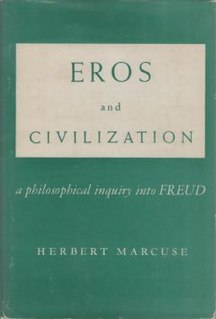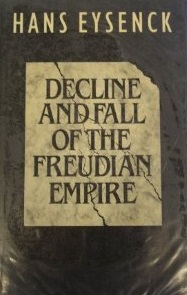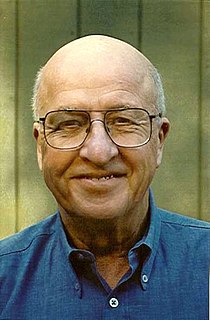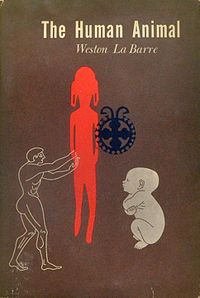
Psychoanalysis is a set of theories and therapeutic techniques used to study the unconscious mind, which together form a method of treatment for mental disorders. The discipline was established in the early 1890s by Austrian neurologist Sigmund Freud, who retained the term psychoanalysis for his own school of thought. Freud's work stems partly from the clinical work of Josef Breuer and others. Psychoanalysis was later developed in different directions, mostly by students of Freud, such as Alfred Adler and his collaborator, Carl Gustav Jung, as well as by neo-Freudian thinkers, such as Erich Fromm, Karen Horney, and Harry Stack Sullivan.

Sigmund Freud was an Austrian neurologist and the founder of psychoanalysis, a clinical method for treating psychopathology through dialogue between a patient and a psychoanalyst.
Psychoanalytic theory is the theory of personality organization and the dynamics of personality development that guides psychoanalysis, a clinical method for treating psychopathology. First laid out by Sigmund Freud in the late 19th century, psychoanalytic theory has undergone many refinements since his work. Psychoanalytic theory came to full prominence in the last third of the twentieth century as part of the flow of critical discourse regarding psychological treatments after the 1960s, long after Freud's death in 1939. Freud had ceased his analysis of the brain and his physiological studies and shifted his focus to the study of the mind and the related psychological attributes making up the mind, and on treatment using free association and the phenomena of transference. His study emphasized the recognition of childhood events that could influence the mental functioning of adults. His examination of the genetic and then the developmental aspects gave the psychoanalytic theory its characteristics. Starting with his publication of The Interpretation of Dreams in 1899, his theories began to gain prominence.
Daniel Kriegman is an American psychologist and writer whose work focuses on the interface between psychoanalysis and evolutionary biology. He was a faculty member at the Massachusetts Institute for Psychoanalysis and a founder of the Psychoanalytic Couple and Family Institute of New England, and a creative consultant for the Edgeline Films (Showtime) docu-series "Couples Therapy." Dr. Kriegman was formerly Chief Psychologist and the Director of Supervision and Training at the Massachusetts Treatment Center for Sexually Dangerous Offenders, as well as the Clinical Director for the maximum-security, intensive-treatment unit for adolescents in Boston.

The Interpretation of Dreams is an 1899 book by Sigmund Freud, the founder of psychoanalysis, in which the author introduces his theory of the unconscious with respect to dream interpretation, and discusses what would later become the theory of the Oedipus complex. Freud revised the book at least eight times and, in the third edition, added an extensive section which treated dream symbolism very literally, following the influence of Wilhelm Stekel. Freud said of this work, "Insight such as this falls to one's lot but once in a lifetime."
Norman Oliver Brown was an American scholar, writer, and social philosopher. Beginning as a classical scholar, his later work branched into wide-ranging, erudite, and intellectually sophisticated considerations of history, literature, psychology, culture, and other topics. Brown advanced some novel theses and in his time achieved some general notability.

Life Against Death: The Psychoanalytical Meaning of History is a book by the American classicist Norman O. Brown, in which the author offers a radical analysis and critique of the work of Sigmund Freud, tries to provide a theoretical rationale for a nonrepressive civilization, explores parallels between psychoanalysis and Martin Luther's theology, and draws on revolutionary themes in western religious thought, especially the body mysticism of Jakob Böhme and William Blake. It was the result of an interest in psychoanalysis that began when the philosopher Herbert Marcuse suggested to Brown that he should read Freud.

Totem and Taboo: Resemblances Between the Mental Lives of Savages and Neurotics, or Totem and Taboo: Some Points of Agreement between the Mental Lives of Savages and Neurotics, is a 1913 book by Sigmund Freud, the founder of psychoanalysis, in which the author applies his work to the fields of archaeology, anthropology, and the study of religion. It is a collection of four essays inspired by the work of Wilhelm Wundt and Carl Jung and first published in the journal Imago (1912–13): "The Horror of Incest", "Taboo and Emotional Ambivalence", "Animism, Magic and the Omnipotence of Thoughts", and "The Return of Totemism in Childhood".
Causa sui is a Latin term that denotes something that is generated within itself. Used in relation to the purpose that objects can assign to themselves, the concept was central to the works of Baruch Spinoza, Sigmund Freud, Jean-Paul Sartre, and Ernest Becker.

Eros and Civilization: A Philosophical Inquiry into Freud is a book by the German philosopher and social critic Herbert Marcuse, in which the author proposes a non-repressive society, attempts a synthesis of the theories of Karl Marx and Sigmund Freud, and explores the potential of collective memory to be a source of disobedience and revolt and point the way to an alternative future. Its title alludes to Freud's Civilization and Its Discontents (1930). The 1966 edition has an added "political preface".

Little, Brown and Company is an American publisher founded in 1837 by Charles Coffin Little and his partner, James Brown, and for close to two centuries has published fiction and nonfiction by American authors. Early lists featured Emily Dickinson's poetry and Bartlett's Familiar Quotations. As of 2016, Little, Brown and Company is a division of the Hachette Book Group.

Freudo-Marxism is a loose designation for philosophical perspectives informed by both the Marxist philosophy of Karl Marx and the psychoanalytic theory of Sigmund Freud. It has a rich history within continental philosophy, beginning in the 1920s and 1930s and running since through critical theory, Lacanian psychoanalysis, and post-structuralism.

Avner Falk is an Israeli clinical psychologist and author. Falk has written psychoanalytic studies of Jewish and Israeli leaders, Jewish history, the Arab–Israeli conflict, antisemitism and Islamic terrorism.

Sexual Politics is a 1970 book by Kate Millett, based on her PhD dissertation. It is regarded as a classic of feminism and one of radical feminism's key texts.
Psychoanalytic sociology is the research field that analyzes society using the same methods that psychoanalysis applied to analyze an individual.
Norman Doidge,, is a psychiatrist, psychoanalyst, and author of The Brain that Changes Itself and The Brain's Way of Healing.

Freud and Philosophy: An Essay on Interpretation is a 1965 book about Sigmund Freud, the founder of psychoanalysis, by the French philosopher Paul Ricœur. In Freud and Philosophy, Ricœur interprets Freud's work in terms of hermeneutics, the theory of the rules that govern the interpretation of a particular text, and discusses phenomenology, a school of philosophy founded by Edmund Husserl. He addresses questions such as the nature of interpretation in psychoanalysis, the understanding of human nature to which it leads, and the relationship between Freud's interpretation of culture and other interpretations. The book was first published in France by Éditions du Seuil, and in the United States by Yale University Press.

Decline and Fall of the Freudian Empire is a book by the psychologist Hans Eysenck, in which the author criticizes Sigmund Freud, the founder of psychoanalysis. Eysenck argues that psychoanalysis is unscientific. The book received both positive and negative reviews. Eysenck has been criticized for his discussion of the physician Josef Breuer's treatment of his patient Anna O., whom Eysenck argues suffered from tuberculous meningitis.

Spinoza is a book about Baruch Spinoza by the English philosopher Stuart Hampshire, in which the author introduces Spinoza's philosophy, comparing Spinoza's views to those of other philosophers such as René Descartes and Gottfried Wilhelm Leibniz, as well as to those of Sigmund Freud, the founder of psychoanalysis. Spinoza has become a classic work about Spinoza and has received praise from philosophers. However, Hampshire's comparisons between Spinoza and Freud have been criticized for ignoring important differences between the two. In 2005, Spinoza, along with Hampshire's other writings on the philosopher, was incorporated into a single volume, published as Spinoza and Spinozism, which received negative reviews.

Norman N. Holland was an American literary critic and Marston-Milbauer Eminent Scholar Emeritus at the University of Florida.














